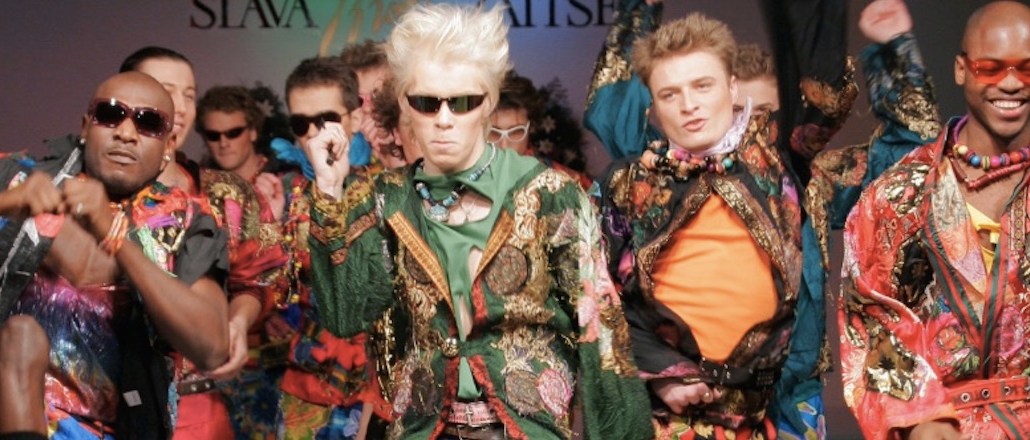Secure your place at the Digiday Media Buying Summit in Nashville, March 2-4

BBH founder Sir John Hegarty wants fashion brands to loosen up.
“Humor is such an incredibly powerful force, and fashion doesn’t use it. It’s always intrigued me how serious everyone in fashion ads are,” he told an audience at Decoded Fashion’s London summit Wednesday.
Hegarty has worked with a wide range of fashion brands over the years, including for Levi Strauss, Burberry, Selfridges and Pretty Polly. He’s seen what’s gone right — and what has been “monumentally” wrong. “The fashion industry is being driven by people who don’t understand brands,” he said. “Brands are collections of ideas and thoughts that create a difference, and how you create that difference in a market when you both have to be the same but also stand out is the great conundrum.”
At one particular meeting with a fashion designer, for example, he asked for a big idea. The answer came back: blue. “That’s not an idea, it’s a color,” he scoffed, before adding, “Many in the fashion industry wouldn’t understand an idea if it smacked them in the face.”
He said this is exactly what’s plaguing British retailer Marks & Spencer, which received some uncomfortable headlines in the press last month for clothing sales that have failed to grow over the last five years. To Hegarty, this suggests it hasn’t figured out a way to project what it stands for.
“I guarantee M&S will constantly fail because there is no philosophy behind what they do,” he said. “I’ve no idea what they’re trying to do. They’ve not established what they believe in, and that means they haven’t understood the principles of what drives a brand.”
He did reserve praise for one fashion brand: Paul Smith. “One of the reasons Paul has succeeded is because he has a point of view. He calls it fashion with a twist. But everything he does he expresses with a sense of humor.”
Establishing that core idea and brand philosophy is also crucial if fashion brands (or any brand) is to stand out on platforms like Instagram, where stand-out is already tough.
“Technology enables opportunity, and creativity creates value,” he said. “That’s fundamentally important. When people come to me and say, ‘Hey, we’re going on Instagram,’ I say, ‘OK — what are you going to say?’ It’s like walking into a room and saying, ‘I’m going to write a book.’ We’ve become obsessed with technology but not about what we’re actually going to say.”
Image: Wikimedia.
More in Marketing

Future of Marketing Briefing: AI’s branding problem is why marketers keep it off the label
The reputational downside is clearer than the branding upside, which makes discretion the safer strategy.

While holdcos build ‘death stars of content,’ indie creative agencies take alternative routes
Indie agencies and the holding company sector were once bound together. The Super Bowl and WPP’s latest remodeling plans show they’re heading in different directions.

How Boll & Branch leverages AI for operational and creative tasks
Boll & Branch first and foremost uses AI to manage workflows across teams.





